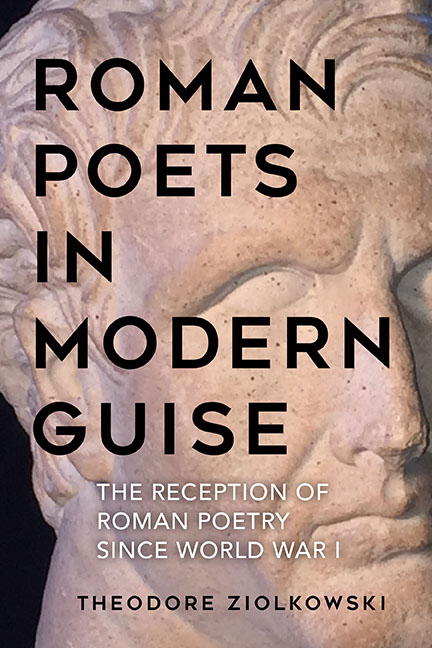3 - Lucretius: Poet or Scientist?
Published online by Cambridge University Press: 21 October 2020
Summary
Titus Lucretius Carus (circa 94–54 BCE) occupies a place in the history of Latin literature alongside and sometimes even above Virgil as an epic poet and is celebrated above all as the most significant advocate of Epicureanism in Rome of the first century BCE, yet he plays hardly any role in the literature of the twentieth century. He appears, as we have seen, as one of the two speakers in Valéry's “Dialogue de l’arbre” (1943), which amounts to a dialogue between the poet (Tityrus/Virgil) and the philosopher (Lucretius), who constantly challenges his peer to rethink his notions. Tityrus, lying beneath the beech tree as in Virgil's First Eclogue, plays his flute and meditates on the mystery of the tree. “O Lucretius, is it not a miracle that a shepherd, a man forgetting a flock, can pour out to the skies the fleeting form and as it were the naked idea of the Tree and of the instant?” (153). But Lucretius counters soberly: “There is no miracle, Tityrus, no prodigy which the mind, if it wills it so, cannot reduce to its own artless mystery… . I myself think your tree, and possess it in my own way.” In the course of their conversation Lucretius expresses many of the fundamental tenets of De Rerum Natura. For instance: “This great Tree is for you only your fantasy. You think you love it, Tityrus, but only see your charming fancy there, which you bedeck with leaves” (156). Or elsewhere: “We have only ourselves to fear. The gods and destinies cannot work aught in us but by the treachery of our all-sensitive fibers” (162). Valéry is attracted to Lucretius primarily as a thinker and, in his prose dialogue, displays no appreciation of Lucretius's poetry.
Although the atomistic and allegedly antireligious teachings of his De Rerum Natura were rejected during the Christian Middle Ages, even his opponents treasured Lucretius as a powerful artist of language. Following his rediscovery in the Renaissance he began to be ever more highly esteemed as a philosopher and scientist. But after the nineteenth century, when his influence was still large among many writers, he was cited ever less frequently as a poet.
- Type
- Chapter
- Information
- Roman Poets in Modern GuiseThe Reception of Roman Poetry since World War I, pp. 79 - 98Publisher: Boydell & BrewerPrint publication year: 2020



